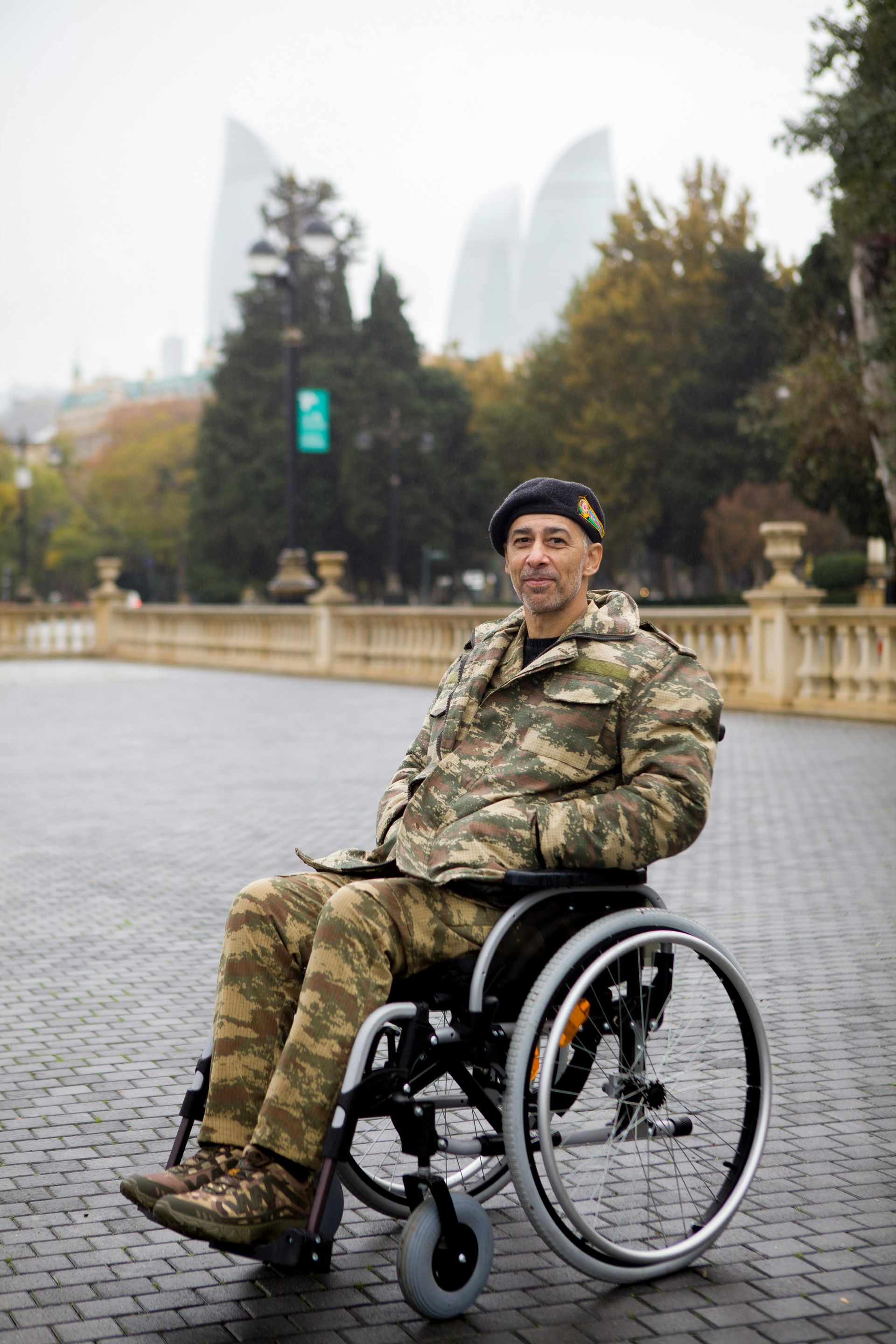Are Suicidal Thoughts Normal, Or A Sign To Seek Help?-💜
CNS Healthcare • April 25, 2025
Curious to know if suicidal thoughts are normal? You're not the only one. Would you believe that in the U.S. alone, over 10 million adults experience thoughts of suicide?
Because these thoughts are so common, it's crucial to understand when these extreme thoughts are a sign of a more serious problem. In this guide, you'll learn to recognize warning signs of suicide so you can seek support quickly if needed.
Key Takeaways
- More than 10 million adults in the U.S. have had suicidal thoughts. These thoughts are usually a symptom of deeper emotional distress that needs to be addressed.
- Suicidal thoughts can be either passive or active. Feeling isolated and hopeless are just a few of the serious signs signaling that you may need immediate help from a professional or other support networks.
- Warning signs may include talking about wanting to die, any major mood swings, behaving recklessly, abusing drugs or alcohol more often, and searching for methods to end your life online.
- When facing ongoing suicidal thoughts or after a suicide attempt, getting help is critical. You can get confidential support from local resources in Oakland County, MI, or larger organizations like the National Suicide Prevention Lifeline.
- Reaching out for help, performing calming activities, avoiding substance abuse, having a safety plan, and taking things day by day, are effective coping strategies that can help you manage these thoughts.
Understanding Suicidal Thoughts
Thoughts about ending your own life should be a clear sign of distress and that you should seek out help from mental health professionals or supportive family members. These thoughts often stem from going through difficult times and may be a signal that you are having a hard time coping with emotional distress.
What are suicidal thoughts?
Suicidal thoughts can be grouped into two categories: passive, or active. Passive thoughts, or Passive suicidal ideation, include thoughts like wishing you weren't alive but in reality, you have no serious plan to actually end your life. Active suicidal ideation occurs when you're both thinking about suicide and really planning it out.
Isolation and hopelessness can make it feel like you are unable to escape...this can indicate mental health issues. Mood swings, chronic pain from a medical condition, or difficult life events could be the trigger for these serious symptoms.
If you're having these kinds of thoughts, it's crucial to connect with a mental health professional. Whether your thoughts are side effects of overwhelming emotional distress, physical pain, or mental disorders, help is out there. There are many ways to calm your thoughts...from therapy sessions, to the Crisis Lifeline in the United States for immediate crisis assistance, to various support networks that can offer confidential guidance.
Reaching out and getting the professional help you need from organizations like CNS Healthcare in Detroit, Michigan can assist you in understanding your thoughts and feelings more clearly. This will then help you develop coping strategies to manage them better over the long run.
When do suicidal thoughts become a concern?
Suicidal thoughts start to become an issue if they are ongoing. If you feel hopeless or think about self-harm regularly, it's critical that you reach out to healthcare provider for professional help. These thoughts can also become intensified when combined with conditions and circumstances like mental illness, substance use, past trauma, bullying, or relationship issues.
A professional will be able to evaluate the severity and depth of your thoughts and suicidal feelings by using tools like the Columbia-Suicide Severity Rating Scale and help you take the next appropriate steps.
When to Seek Help
If you've attempted suicide in the past, or if you're having difficulty getting rid of the persistent thoughts of ending your life, it's time call a professional. If you observe someone around you who is showing suicidal warning signs, for example, talking about wanting to die or how they feel hopeless, don't ignore it or keep it to yourself...these are signs that immediate help and intervention is necessary.
Warning signs that indicate the need for professional support
Suicidal thoughts can shift quickly from casual to serious. Knowing the signs is absolutely crucial for getting help in time. Here's what to watch for:
- When getting through daily life feels almost impossible. You may feel trapped or be experiencing unbearable pain.
- Wild mood swings that range from very high to extremely low within a short period of time.
- Telling people you want to die.
- Engaging in risky activities and being careless without worrying about the consequences.
- Constant sadness, isolating yourself from friends and family, or losing interest in activities you would usually enjoy.
- An increase in alcohol or drugs usage in an effort to cope.
- Searching online for ways to end your life.
- Thinking that you have no reason to live.
- Getting personal affairs in order out of the blue, or giving away prized possessions.
- Saying goodbye in a way that appears to be final.
If you notice any of these serious warning signs in yourself or someone you know, reach out for professional help immediately. Ignoring these signs may result in self-harm or a much worse scenario.
Coping Strategies
When you're feeling overwhelmed with life or find yourself entertaining thoughts of suicide, remember that support is out there. Professionals exist so they can get you the right mental health care and provide you with coping strategies to help you handle your emotions and find a way forward.
Steps to manage and address suicidal thoughts
If you're experiencing suicidal thoughts, it's essential to manage and address them as quickly as possible. Here are some next steps you can take:
- Connect with a mental health professional or someone in your life that is supportive and let them know how you've been feeling.
- Create a safety plan, including methods to distract yourself. Reduce your access to any means of self-harm, for example, guns or medications.
- Participate in activities that give you purpose and comfort. Engage in fun hobbies or carve out time to spend with friends and family.
- Avoid using alcohol or drugs to drown out your thoughts.
- Focus on managing just one day at a time instead of trying to control the future.
- If you're having a mental health emergency, contact the Crisis Text Line for immediate support. You can also receive safe and confidential support from organizations like The National Suicide Prevention Lifeline.
Asking for help and putting these strategies into action will have a significant positive impact on your suicidal thoughts. Sharing your thoughts with a mental health professional is a critical step and the best way to prevent suicide.
Conclusion
Knowing when to seek out help for your suicidal thoughts is a critical step in healing your mental health. While it may be common to experience distressing thoughts, any persistent suicidal thoughts may be a warning that you need to invest in professional support.
There are also many coping strategies that are practical and effective in managing your thoughts on a daily basis. Leveraging these techniques while also connecting with support groups and taking part in community activities is a great way to build a support system to help you in your weakest moments.
Asking for help is not a sign of weakness but a positive step towards in healing. Together, we can help to bring the suicide rate down. Life is worth living.
FAQs
1. Are suicidal thoughts normal or a sign to seek help?
Both passive or active suicidal thoughts, are not typical and could indicate a mental health crisis. If you're having persistant suicidal thoughts, it's essential that you reach out for immediate support.
2. What can trigger suicidal behavior in young people?
Many risk factors can cause suicidal behavior in young adults and high school students, leading to teen suicide. These include long-term mental health problems like major depressive disorder, bipolar disorder, anxiety disorders, and post-traumatic stress disorder. Other influential factors include a family history of suicide, difficult situations around sexual orientation, substance use disorders, the influence of social media, and more.
3. How can I support someone who shows suicide warning signs?
The first step is to validate their feelings in a non-judgmental way while allowing them to talk about their thoughts. You can offer support by listening empathetically and encouraging them to get professional help. Professional services like cognitive behavioral therapy or online therapy options are a good place to start.
4. What should I do if there's an immediate danger due to suicidal ideation?
If you or someone you know is at immediate risk of self-harm or has previously made a suicide attempt, call emergency services immediately or take them to the emergency room for an urgent assessment. Do not leave them alone. In an emergency situation, they can also contact the Crisis Text Line or Suicide and Crisis Lifeline.
5. Where can one find additional resources for managing negative thoughts and promoting mental well-being?
You can find resources that address mental health challenges at organizations like the Mental Health Services Administration. They also include information for service members struggling with traumatic stress disorder.
6. Can peer support groups be beneficial in managing passive suicidal thoughts?
Peer support groups can help reduce suicidal thought while providing community and shared experiences from those who've been through similar mental health issues. This can significantly help with recovery when paired with other professional treatment options.
Newsletter
Recent Posts
SHARE THIS POST WITH YOUR FRIENDS













